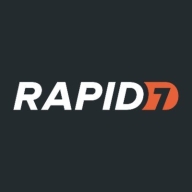

Find out in this report how the two Dynamic Application Security Testing (DAST) solutions compare in terms of features, pricing, service and support, easy of deployment, and ROI.
| Product | Market Share (%) |
|---|---|
| Veracode | 18.2% |
| Rapid7 InsightAppSec | 6.2% |
| Other | 75.6% |

| Company Size | Count |
|---|---|
| Small Business | 12 |
| Midsize Enterprise | 2 |
| Large Enterprise | 5 |
| Company Size | Count |
|---|---|
| Small Business | 69 |
| Midsize Enterprise | 44 |
| Large Enterprise | 115 |
Your web applications may be complex, but your application security testing tool doesn’t need to be. InsightAppSec brings Rapid7’s proven Dynamic Application Security Testing (DAST) technology to the Insight platform, combining powerful application crawling and attack capabilities, flexibility in scan scope and scheduling, and accuracy in results with a modern UI, intuitive workflows, and sensible data organization. This enables you to identify XSS, SQL injection, CSRF, and other vulnerabilities with unparalleled ease. The best part? All of these capabilities are delivered via the cloud so that you’re up and running in minutes to identify the critical security risks that exist in your applications.
Veracode is a leading provider of application security solutions, offering tools to identify, mitigate, and prevent vulnerabilities across the software development lifecycle. Its cloud-based platform integrates security into DevOps workflows, helping organizations ensure that their code remains secure and compliant with industry standards.
Veracode supports multiple application security testing types, including static analysis (SAST), dynamic analysis (DAST), software composition analysis (SCA), and manual penetration testing. These tools are designed to help developers detect vulnerabilities early in development while maintaining speed in deployment. Veracode also emphasizes scalability, offering features for enterprises that manage a large number of applications across different teams. Its robust reporting and analytics capabilities allow organizations to continuously monitor their security posture and track progress toward remediation.
What are the key features of Veracode?
What benefits should users consider in Veracode reviews?
Veracode is widely adopted in industries like finance, healthcare, and government, where compliance and security are critical. It helps these organizations maintain strict security standards while enabling rapid development through its integration with Agile and DevOps methodologies.
Veracode helps businesses secure their applications efficiently, ensuring they can deliver safe and compliant software at scale.
We monitor all Dynamic Application Security Testing (DAST) reviews to prevent fraudulent reviews and keep review quality high. We do not post reviews by company employees or direct competitors. We validate each review for authenticity via cross-reference with LinkedIn, and personal follow-up with the reviewer when necessary.